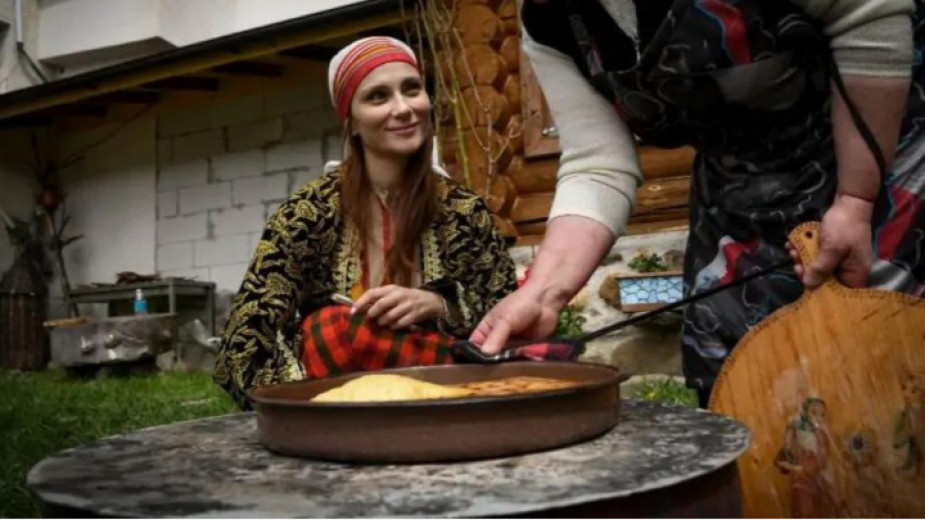 4
4
Getting to know the cuisine typical of a given place goes hand in hand with rural tourism. The region of Kyustendil in Southwestern Bulgaria, is a gold mine in this respect, with gastro tours in this part of Bulgaria gaining in popularity. Tourists visit small farms or pay visits to the homes of the locals who introduce them to the finer points of the cuisine of Kyustendil which is based on old-time recipes handed down from generation to generation.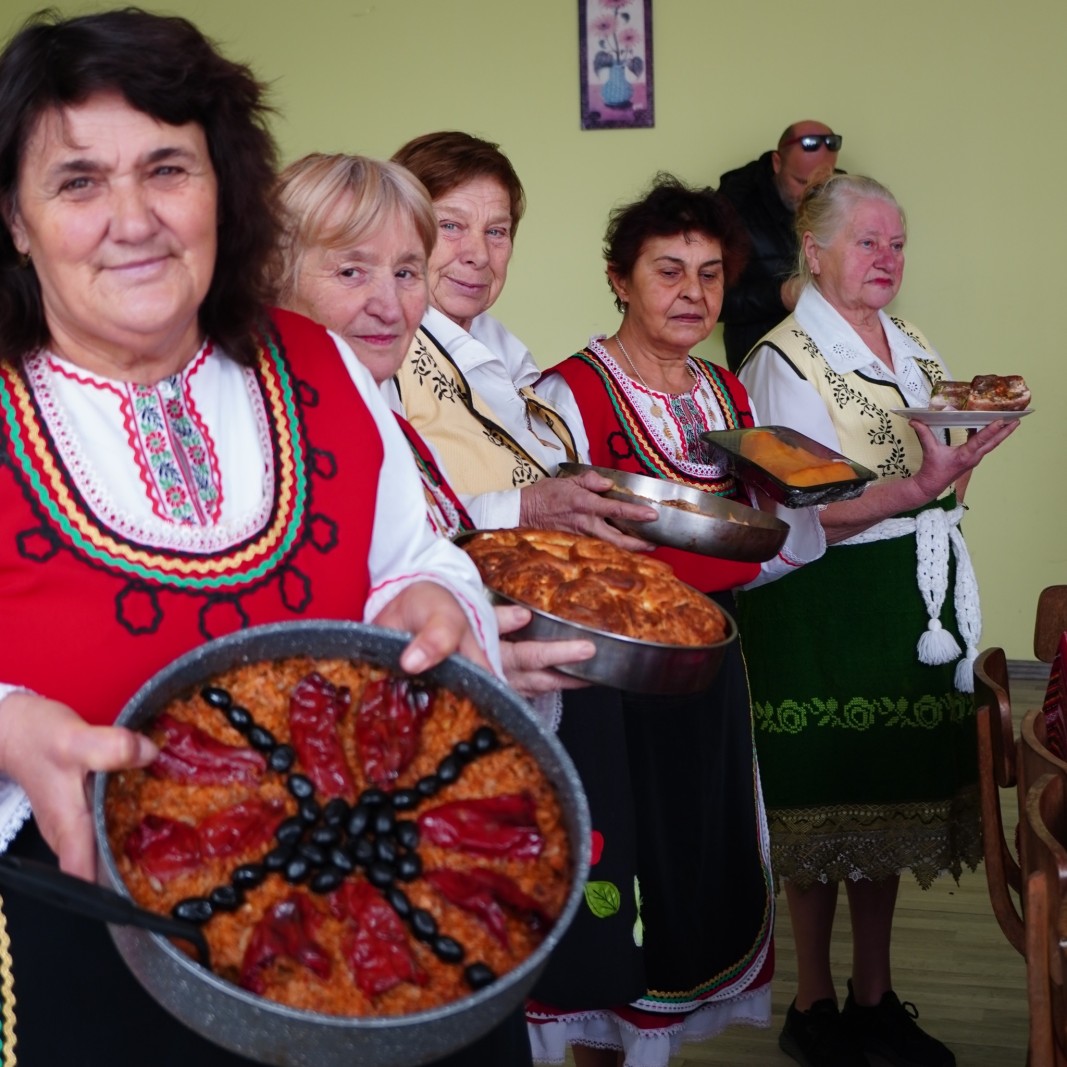
“The guests can have a chat with their hosts, find out about the history of the place, the customs here, and “get into their shoes”, says Gergana Kabaivanova, manager of an online gastro and rural tourism platform. For example, in the centre of Razhdavitsa village, there is a small ethnographic complex in which the local crafts cooperative makes demonstrations of different local crafts, customs and culinary traditions. But which is Kyustendil’s most popular specialty?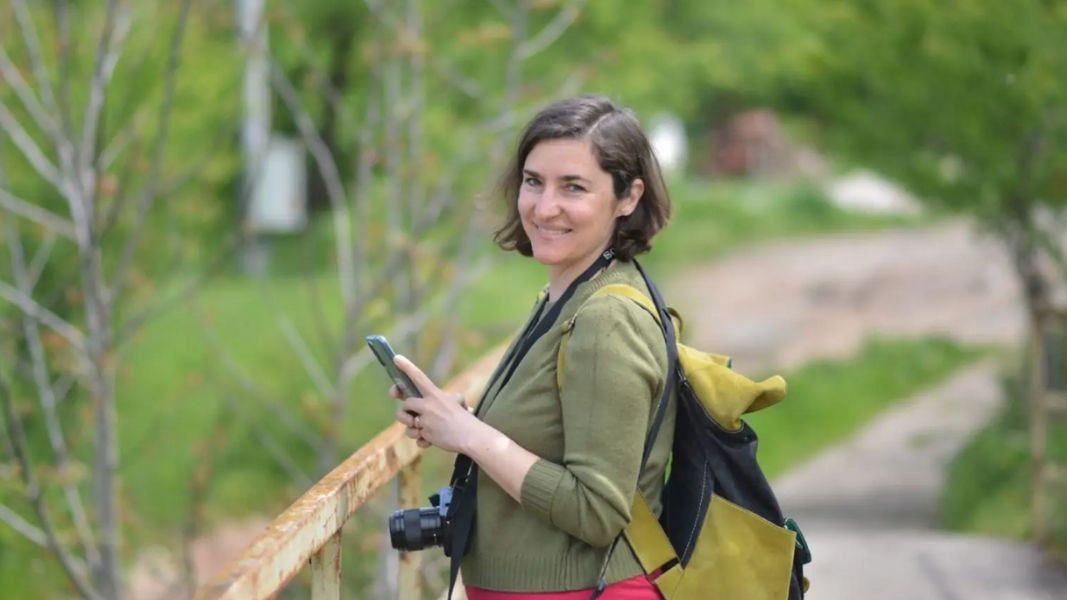
“From a gastronomic point of view there are terrific ingredients there, and the “queen” of all dishes is Kyustendil zelnik, which is made with two kinds of filling, the filo pastry sheets are folded in three kinds of ways, and it is baked in a podnitsa casserole (a shallow clay pan which is buried in the embers of the home fire - editorial note),” says Gergana Kabaivanova. “It is a unique Bulgarian dish. People in the villages call it Zelnik because the filling is made out of all kinds of greens (zelnik is derived from zelen – green). 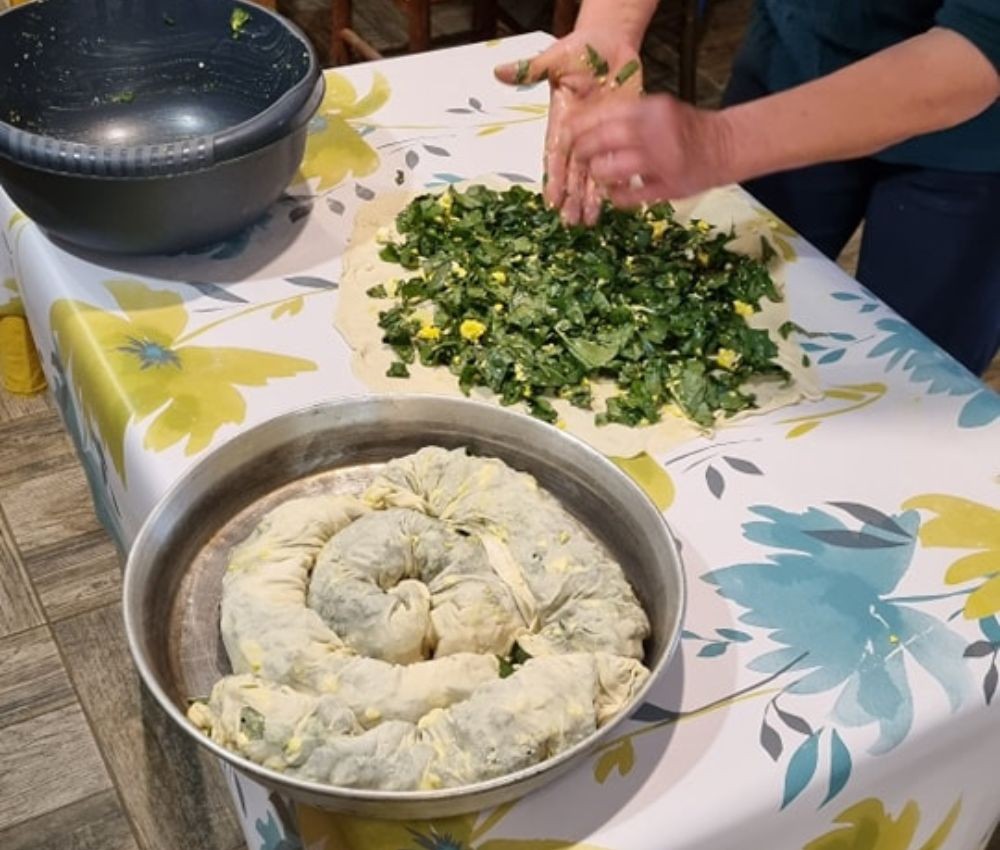
In the centre of this banitsa is the filling of greens (in wintertime it includes peppers and tomatoes), while in the periphery the filling is of eggs and white cheese (sirene). And when you cut yourself a slice you get two different flavours. The rituals connected with banitsa are still very important because they convey a sense of warmth and unity of the local community.”
Tourists are always eager to make banitsa themselves, and what they love most is to knead and roll out the filo sheets instead of cutting up meat or vegetables. The region is also famous for its boza-making traditions. Demonstrations are given in the boza shop in Razhdavitsa village showing how this emblematic drink is made. 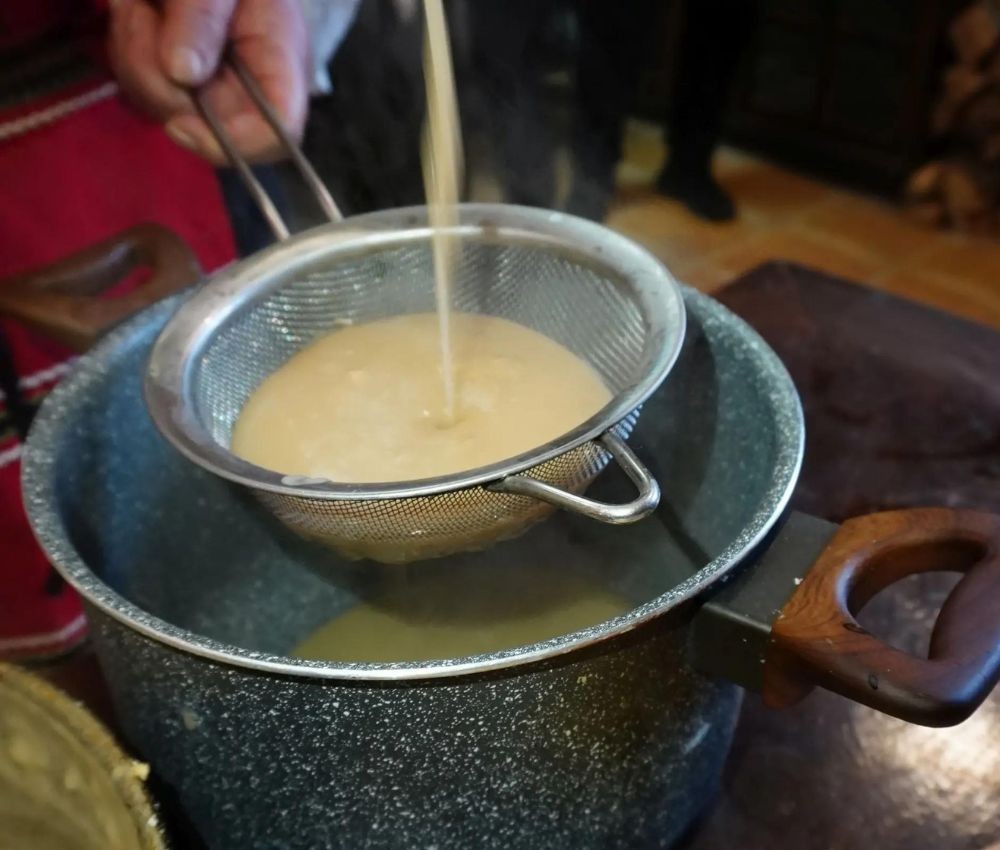
“There are other interesting things to eat here. For example, skrob which is made out of maize bread broken into big bites, sprinkled with cheese and butter, or powder sugar, though that is a more modern version – historically, sugar has not been an element of Bulgarian cuisine for very long. There are other interesting dishes in the region as well, and they are unfamiliar to most people in Bulgaria,” Gergana Kabaivanova says.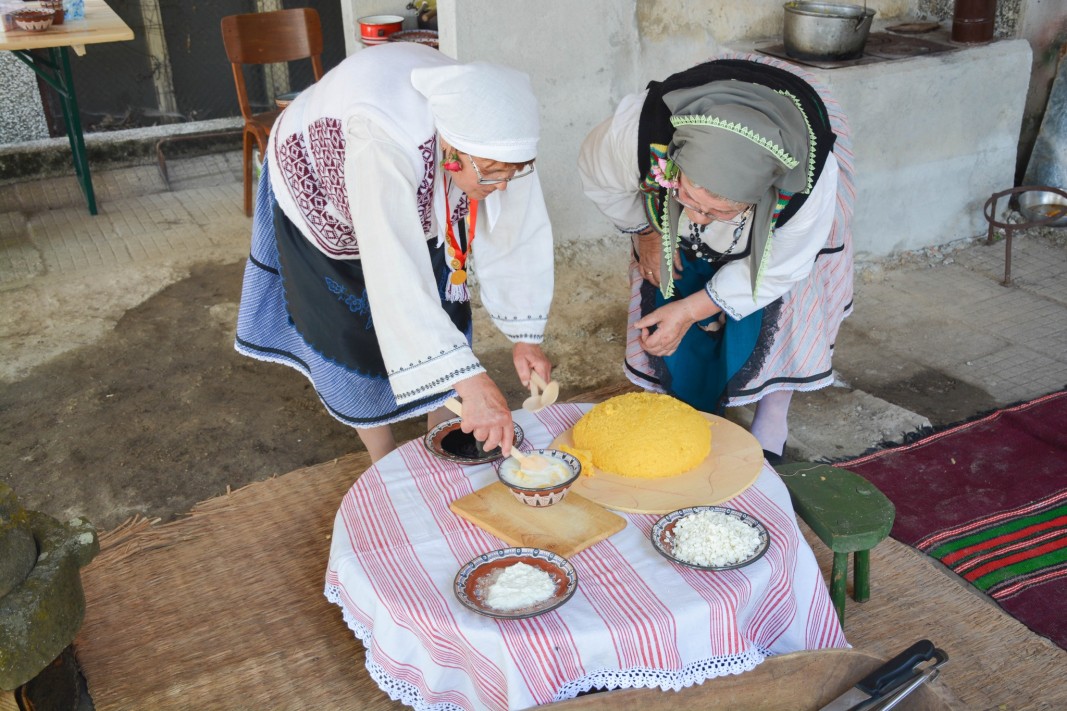
In the small goat farm in Blatets village, tourists can find out how to make home-made sirene (white cheese), butter or yogurt. People in the village of Eremia make wholegrain pizza in ovens that are 100 years old called taban. They are shown how to make spelt bread, how to grind their own flour or how to make leaven from cereals and legumes.
In Razhdavitsa village, renowned Bulgarian painter Vladimir Dimitrov-the Master painted some of his emblematic portraits of Bulgarian women dressed in typical Kyustendil costumes against the background of fruit orchards. 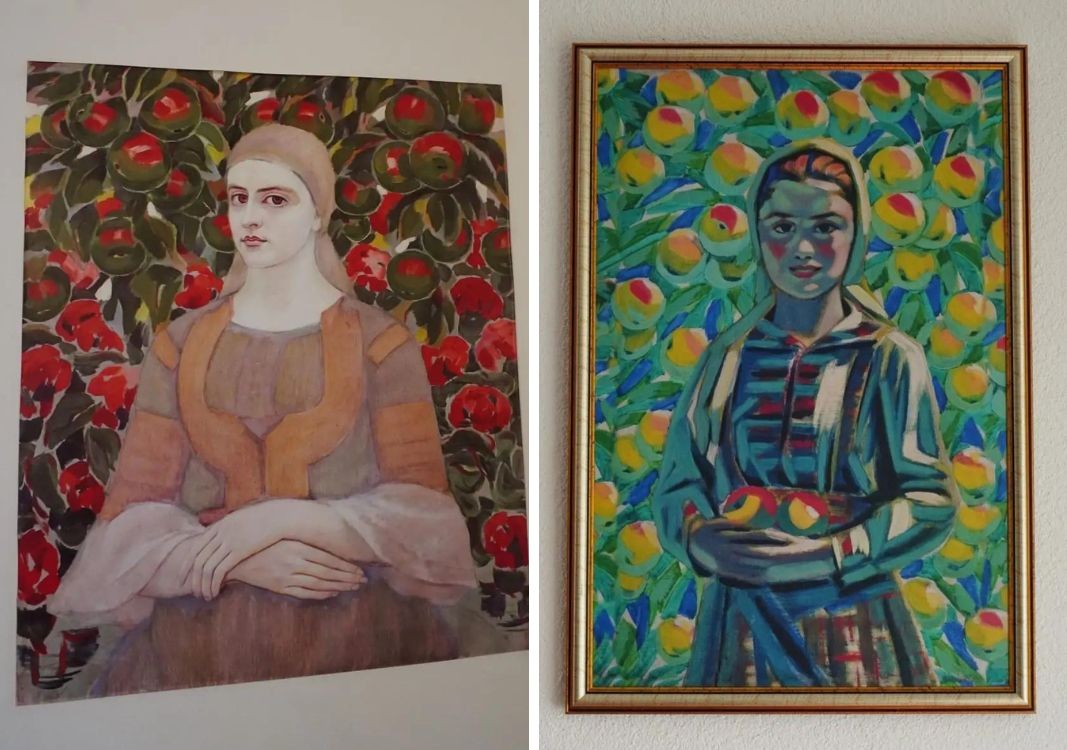
That was how the idea came about to organize photo sessions for the guests, dressed in national costumes similar to the ones depicted in his paintings. "Nature in the region is magnificent, an excellent combination with gastro tourism,” says Gergana Kabaivanova and adds:
“Of course, the mineral springs are also well worth visiting. There are some very good small spa hotels in the area which offer swimming pools with mineral water. What I myself really enjoy is the train trip from Sofia to Kyustendil – a panoramic diesel train offering a view of all of the beauty of the region of Zemen Gorge. The trip takes 2-3 hours,” says Gergana Kabaivanova.
More:
Translated and posted by Milena Daynova
Photos: pendara.bg, Facebook Gergana Kabaivanova
Bulgarians are traveling more and more actively and are spending more money on travel - both to nearby and distant destinations. Last year, they made about 9 million trips abroad, with neighbouring Turkey, Greece, Romania and Serbia being the most..
Bulgaria's entry into the eurozone is expected to create zones for elitе tourism in our country, similar to other countries in the rich club. Such zones could be developed in the seaside resorts of Sveti Vlas and Sozopol around the yacht..
Bulgaria has a unique tourism potential and we are here to present it in the best way. This was stated by the Minister of Tourism Miroslav Borshosh regarding the country's participation in the largest international tourism exhibition in the world,..
Bulgarians are traveling more and more actively and are spending more money on travel - both to nearby and distant destinations. Last year, they made..

+359 2 9336 661
